Service learning links UMass students and community
| Published: 04-09-2017 6:04 PM |
Students at the University of Massachusetts Amherst aren’t just learning about the history of social change, they’re practicing it.
The Office of Civic Engagement and Service Learning promotes the melding of academics, service work and social change. CESL connects students and classes with community partners to facilitate relationships that foster learning and positive social change on and off-campus.
CESL offers over 25 service learning courses a semester in a broad range of departments, of which over 4,000 students participate. Students with diverse backgrounds and interests can take a number of classes that incorporate a service learning component. Classes include anything from sustainable food and farming classes that engage with local agricultural partners, to journalism class that teaches Hampshire County Jail inmates about basic journalism, to courses that bring UMass students into public schools to teach and mentor students.
“It’s meant to be interdisciplinary,” Joseph Krupczynski, the director of CESL, explained. He added that in all programs, reciprocity is one of the key values.
“The students are going to get a lot of it because they’re in environments that they’re inexperienced with and they get to learn a lot,” Krupczynski said. “But, if we do that without paying attention to how we can have a really powerful positive impact on the community partners, then it’s not a reciprocal relationship.”
Along with classes that place groups of students with fitting community partners, there are also CESL programs that offer tracks for students looking for long-term engagement.
Incoming freshman can enroll in a Residential Academic Program through CESL, called IMPACT! First-semester freshman can live and learn together. They are housed in one residential hall for the year and take a two service learning courses together.
“It is a gateway course the way we see it,” Krupczynski said. “Many of the students signing up for it have done some sort of volunteer work or service work in high school.
Article continues after...
Yesterday's Most Read Articles
 Holyoke man finds bear paw in his yard
Holyoke man finds bear paw in his yard
 Boyfriend accused in slaying of Hampden sheriff’s assistant, former legislator’s top aide
Boyfriend accused in slaying of Hampden sheriff’s assistant, former legislator’s top aide
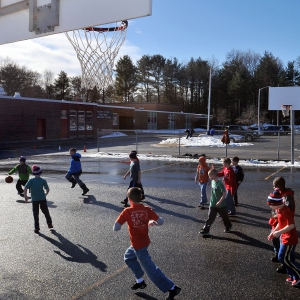 Three finalists named for Ryan Road School principal in Northampton
Three finalists named for Ryan Road School principal in Northampton
 Developer pitches new commercial building on Route 9 in Hadley
Developer pitches new commercial building on Route 9 in Hadley
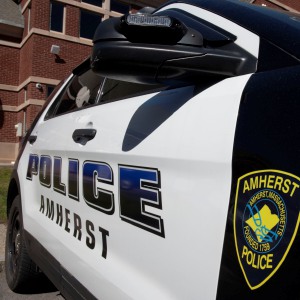 Two men dump milk, orange juice over themselves at Amherst convenience store
Two men dump milk, orange juice over themselves at Amherst convenience store
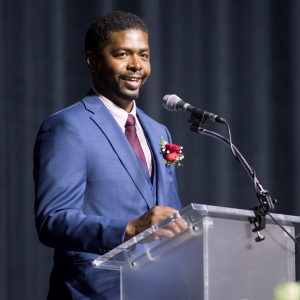 Sadiq to leave Amherst middle school principal role
Sadiq to leave Amherst middle school principal role
Krupczynski explained that service learning is becoming more popular across the educational spectrum, from high schools to universities.
“Students that have different perspectives and different ways of engaging in service and community based learning,” he said. “For some it’s about doing something supportive in the community, for others it’s about making social change in a very strong way. It’s an interesting mix when those attitudes come together.”
CESL also offers an interdisciplinary Certificate in Civic Engagement and Public Service that consists of six critical content courses and at least two service learning courses. The course list is diverse -- from political science and anthropology to communication and Spanish. Each course hits one of five content areas: issues of social justice, civic and political theory, public policy, community and political organizing and diverse publics.
Students can also engage in the Citizen Scholars Program. The CSP is a four-semester community engagement and leadership program geared towards social change. Over the two years the student will engage with a community partner of their choosing and take one course per semester about what makes a “good” society, democratic change, public policy and organizing.
Bryn Hennigar, a sophomore public health and psychology major at UMass, has been deeply immersed in civic engagement and service learning since she stepped foot on campus. As a freshman, she enrolled in IMPACT! and at the same time started working part-time in the CESL office. Now, she is a part of the CSP and a role model for students interested in giving back to their communities via academic partnerships.
When Hennigar joined IMPACT!, she was introduced to a group of people she saw as mostly caring, thoughtful and wanting to be engaged with the community in a positive way. This experience shaped the rest of college path.
“My main focus in school as really deepened through that,” she said.
Hennigar now works with children and young adults with intellectual disabilities at Whole Children in Hadley. In her academic studies, she looks at society from a critical pedagogy and social justice point of view.
“The social change just starts to happen when those two intersect,” Hennigar said. “You’re learning these tools and skills and frameworks and you go to your community partner and you can’t help but connect them.”
She thinks about the role of individuals with intellectual disabilities in society and they way they are treated and perceived. Then, she takes those critical perspectives and applies to her work at Whole Children in a way that pushes towards positive social change in the community.
“Spending time in class thinking academically about why being a person with a disability in our system can be an incredibly difficult thing really inspires me to go out and work on the social change,” Hennigar said.
Right in line with all the other pan-departmental service learning courses, some faculty members are even taking a step further to foster meaningful relationships amongst students and community.
Krupczynski said that some outside faculty members are part of the Faculty Fellows Program, where they work with CESL partners to design or update a course curriculum with a special service learning component. For example, Razvan Sibii and Shaheen Pasha from the journalism department were named 2017 fellows in designing their course, Social Justice Journalism. Each year the course focuses reporting on a specific issue, like immigration or gender inequality. This fall, the course will focus on mass incarceration.
Along with an on-campus discussion portion of the class, 16 students will make weekly visits to Hampshire County Jail to meet with inmates to teach them the basics of journalism and tell their stories. The inmates are even technically enrolled in the course as well, and will receive Continuing Professional Education credit from the course through UMass.
On top of academic tracks, CESL also partners with several major community groups to establish strong relationships with UMass students and community members.
The Boltwood Project began decades ago as a strictly volunteerism project, but was later brought under the umbrella of CESL and integrated with an academic program.
Big Brothers, Big Sisters of Hampshire County (BBBS) also partners with CESL students. A staff member from BBBS teaches a course on mentoring that includes a curriculum on youth development and social, political and cultural issues that can affect the children.
Krupczynski also noted that the department is working on creating more opportunities to bring the community into the university, like how a graduate student has brought a high school student from Holyoke to be a part of a theater production.
For more information on programs or becoming a community partner, visit their website at www.cesl.umass .edu.
Morgan Hughes can be reached at mahughes@umass.edu.

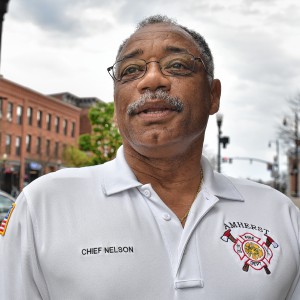 Amherst Fire Chief Walter ‘Tim’ Nelson to retire in June
Amherst Fire Chief Walter ‘Tim’ Nelson to retire in June First look at how little Amherst’s police alternative being used called troubling
First look at how little Amherst’s police alternative being used called troubling Petition to block auto dealership on King Street falters in Northampton
Petition to block auto dealership on King Street falters in Northampton 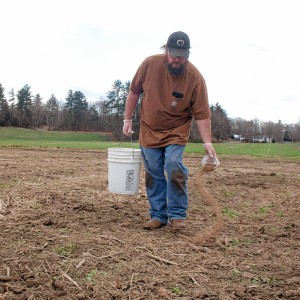 LIME SPREADER
LIME SPREADER
